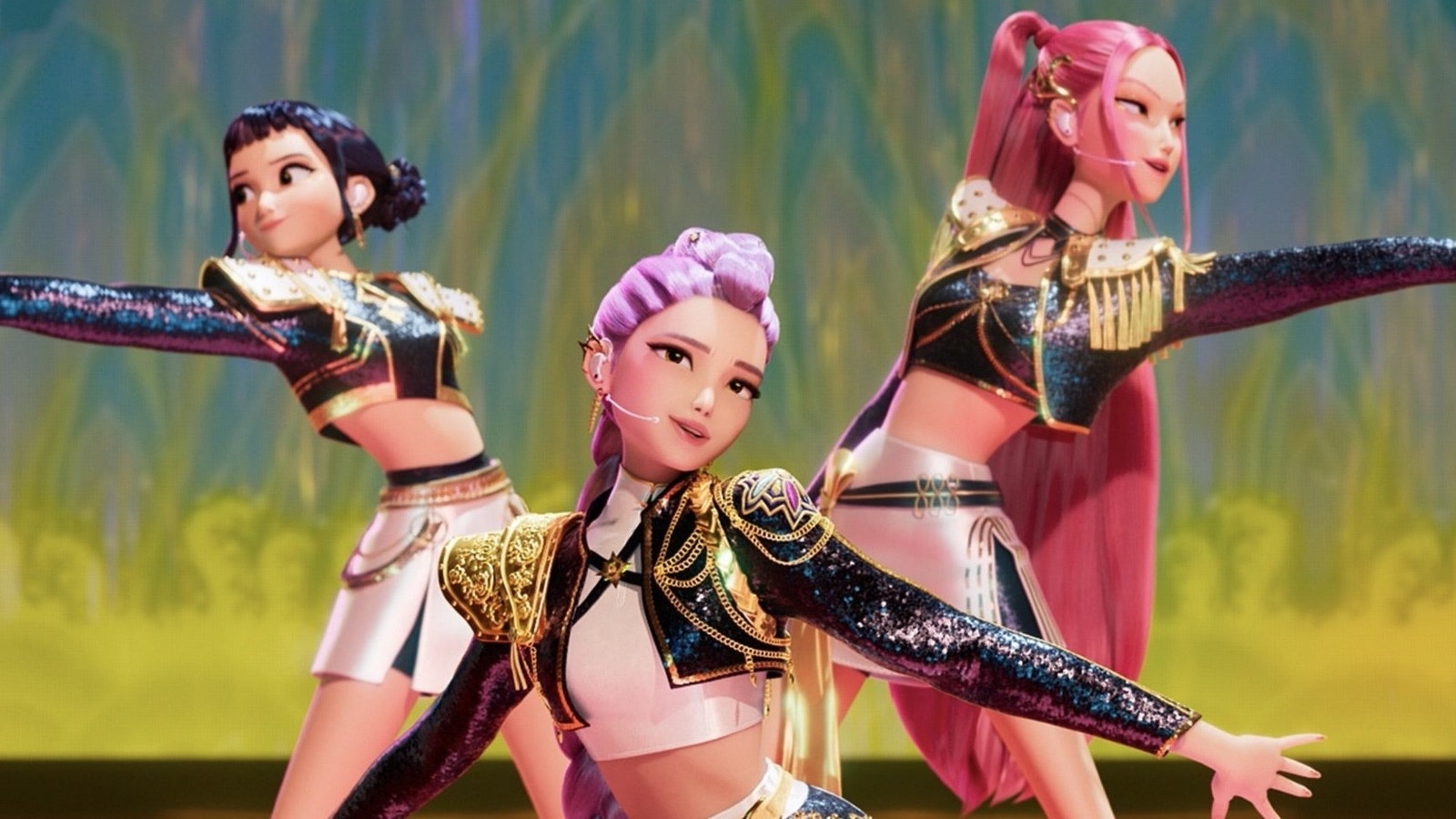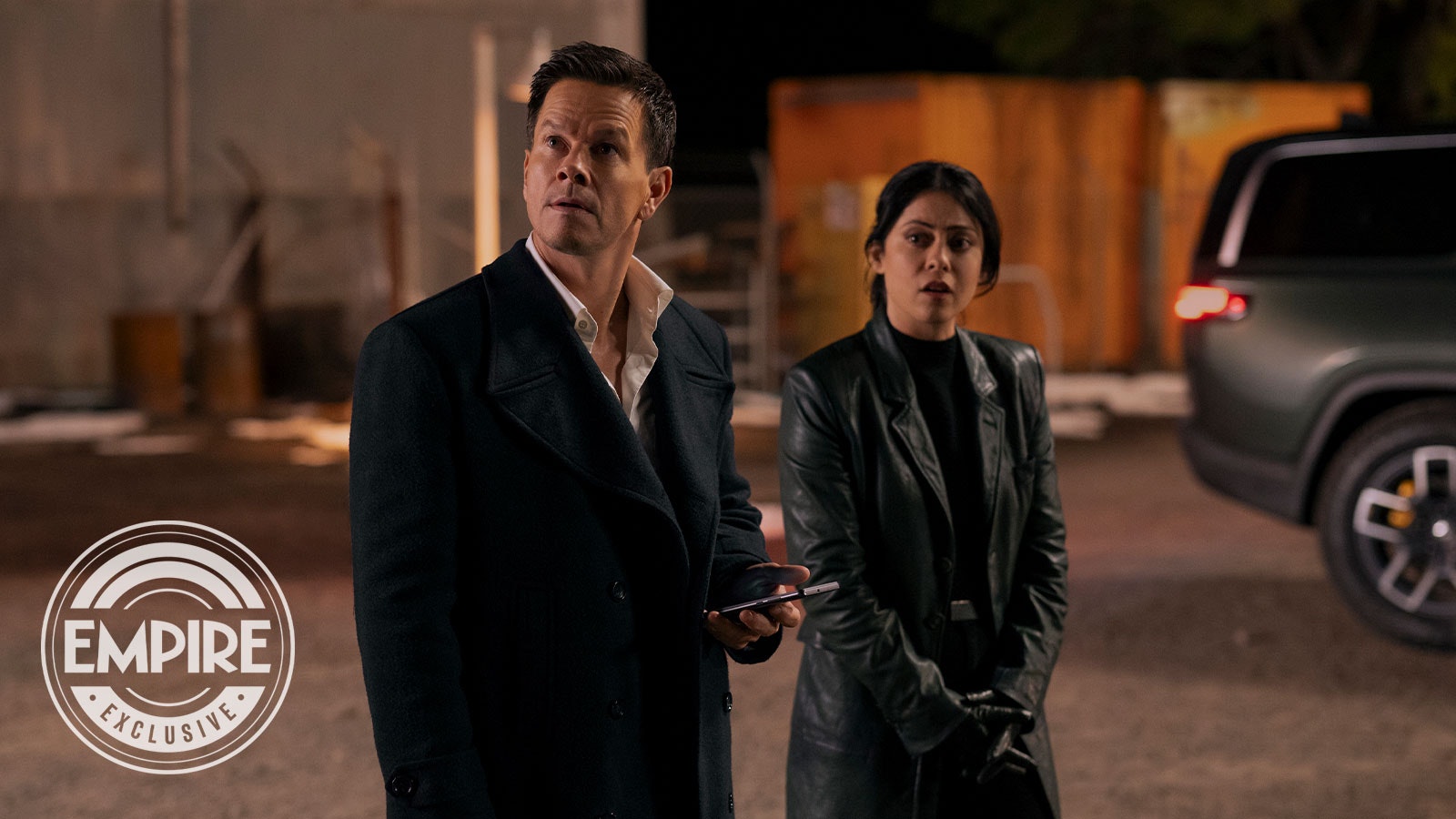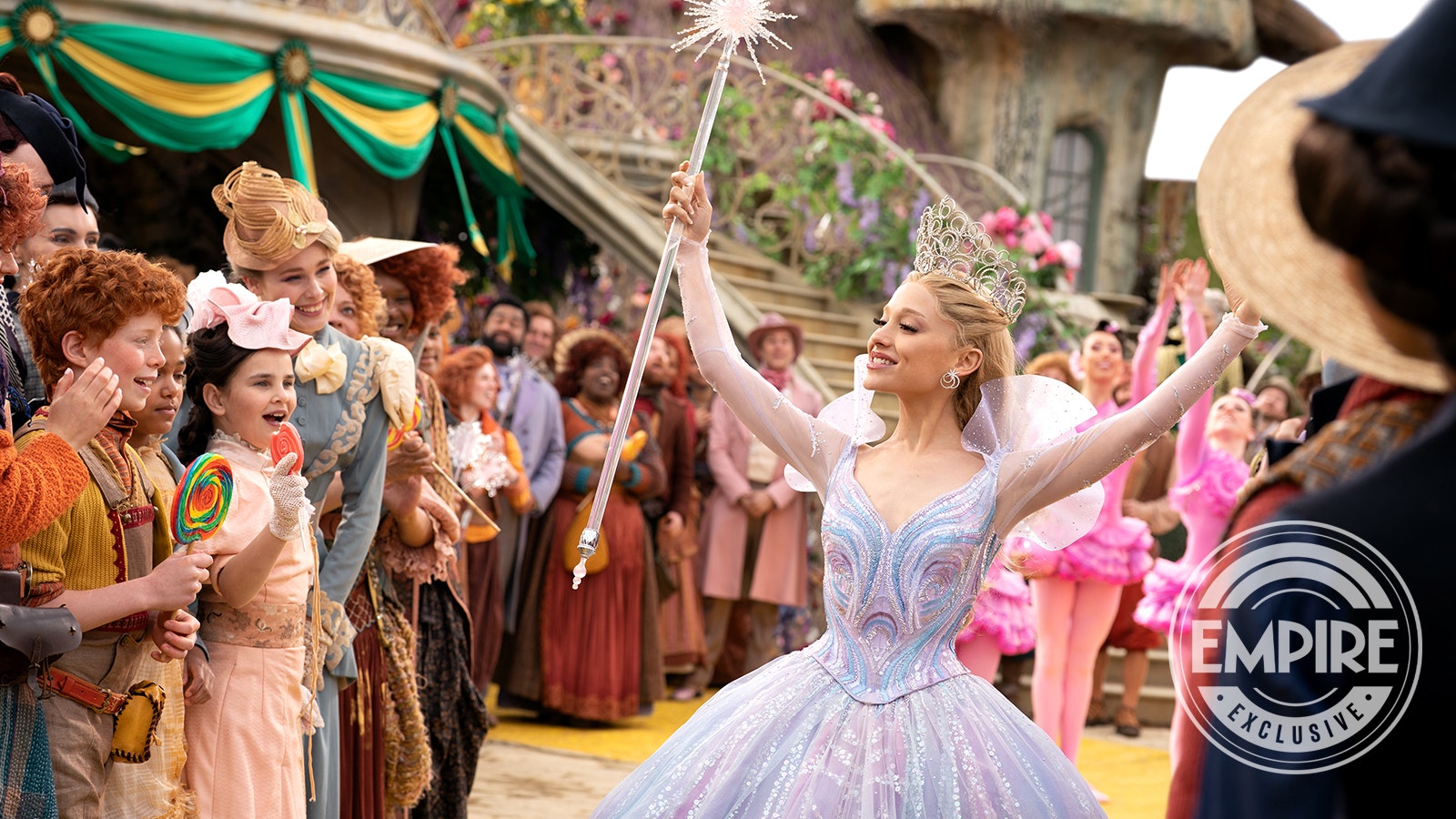David Jonsson On The Long Walk, Why Rye Lane Endures, And His Huge Ambitions
There is a specific smile that David Jonsson has in his repertoire: head...
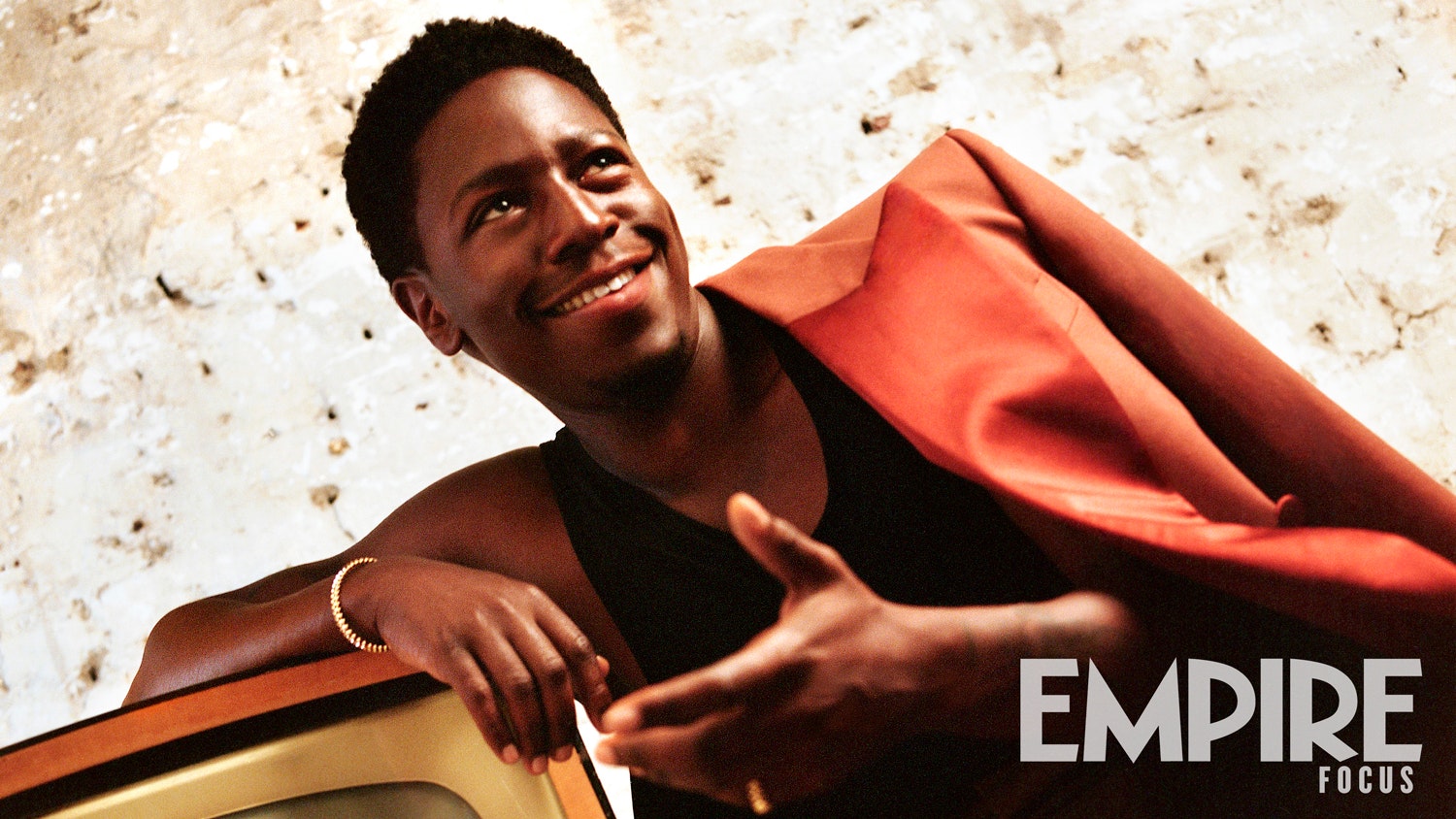
There is a specific smile that David Jonsson has in his repertoire: head slightly bowed, eyes looking upwards, mouth lopsided at the corners. It is shy but suave; friendly but full of secrets. He is an actor who can be relied upon to bring a strange other-worldliness to every role he plays.
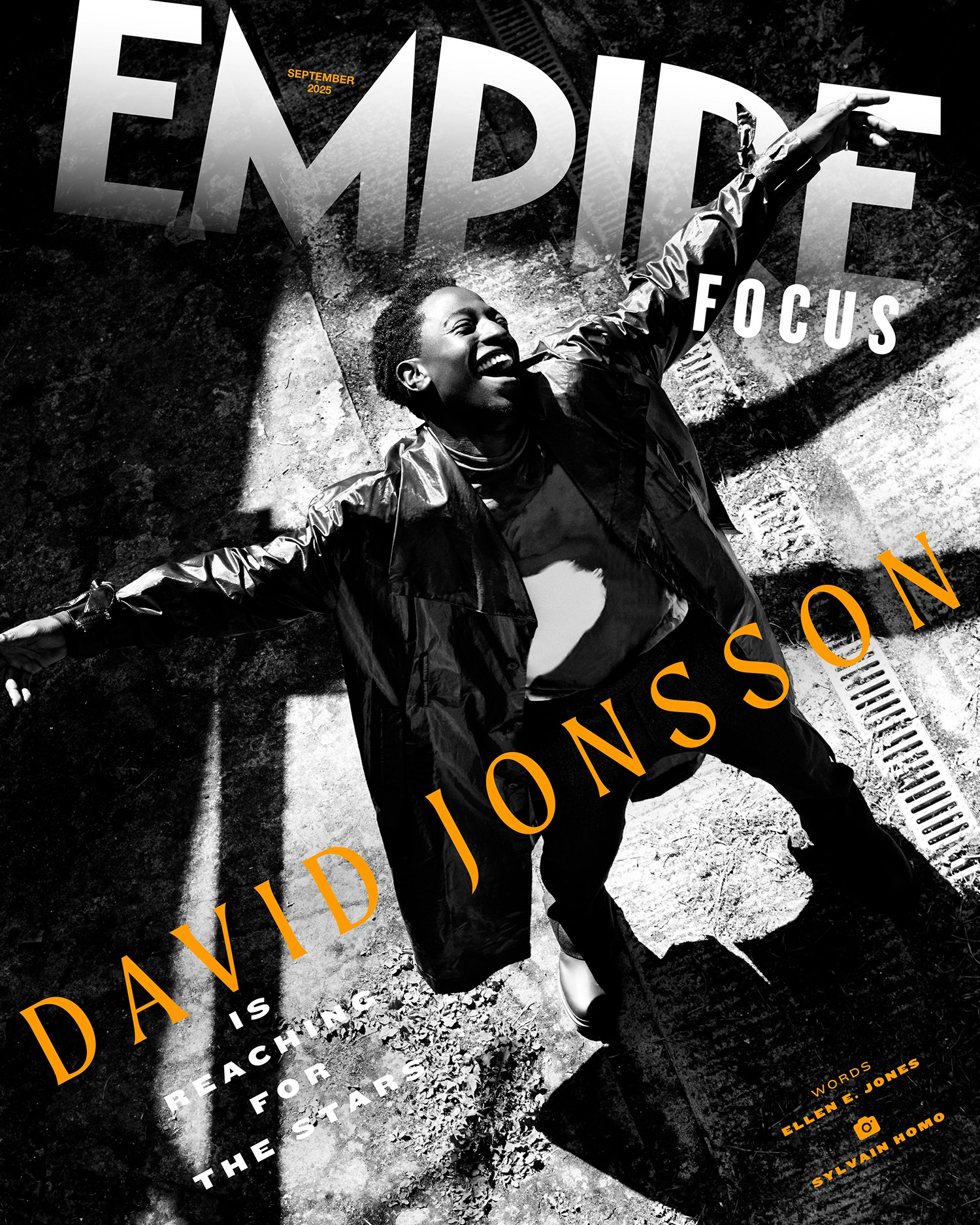
At 31, Jonsson is best known as old-Etonian investment banker Gus in the zeitgeist-y HBO series Industry, south London “sad-boi” Dom in 2023’s much-beloved romcom Rye Lane, and Andy, an AI ‘stimulant’ with more heart than most humans, in Alien: Romulus. Such character types might have felt over-familiar in another actor’s hands, but through Jonsson’s rare qualities, they are reinvigorated almost beyond recognition.
This February, audiences declared themselves smitten, honouring him with the BAFTA Rising Star Award. His acceptance speech displayed that combination of sparkling social intelligence and inner calm which, in conversation, grants Jonsson an uncanny ability to intuit what others are thinking. When we talk, for instance, he’s just disembarked from a much-delayed trans-Atlantic flight (exact origin point unspecified, but possibly the set of a rumoured, top-secret Frank Ocean film). Still, he focuses enough to answer not only the questions Empire asks out loud, but often also the unasked follow-up questions which might have come next.
It stands to reason that Jonsson’s upcoming releases would include three of young, cool Hollywood’s most covetable roles. In September, he’ll play the pivotally enigmatic Peter McVries in The Long Walk, Francis Lawrence’s adaptation of Stephen King’s Vietnam War-era novel about a walking contest set by a totalitarian regime in a dystopian near-future. After that, he stars in Scandalous, Colman Domingo’s story of showbiz virtuoso and Rat Pack lynchpin Sammy Davis Jr’s relationship with Kim Novak (Sydney Sweeney). And then there’s that Frank Ocean project, in which Jonsson is said to be playing a version of the singer, as Ocean himself directs.
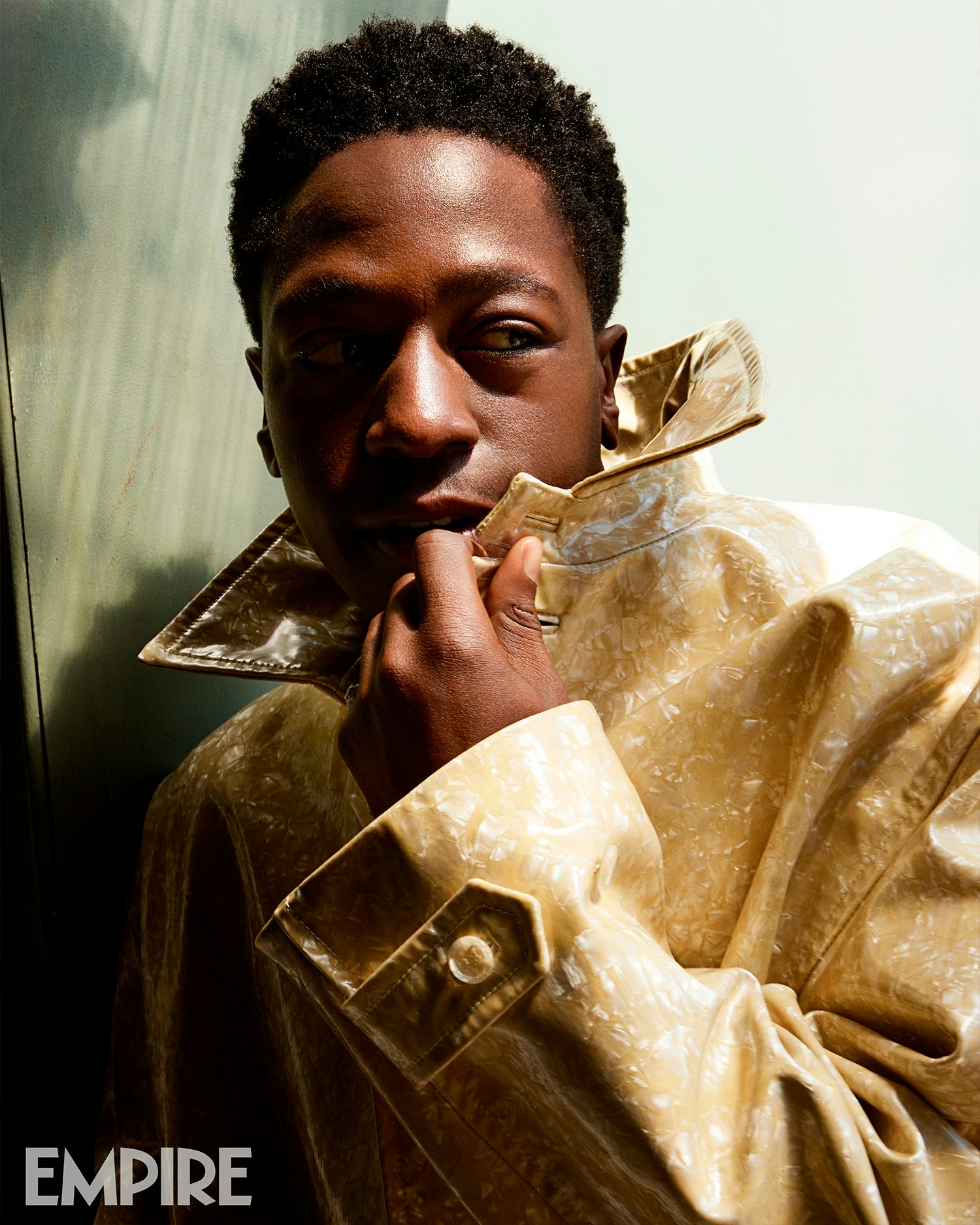
Good luck pinning Jonsson down on any of those specifics, however. He’s still smiling that smile — and it remains full of secrets.
EMPIRE: David, you’re from Custom House in east London. Do you know who the other famous actor from Custom House is?
David Jonsson: Danny Dyer? Come on. I had a Staffordshire Bull Terrier growing up. I used to take it for walks at this park called Cundy Park, up the road, and Danny Dyer would bring his dog there too and you’d just talk. He was like a star to us growing up, but he was so nice to everyone. Yeah, he’s lovely, I love him.
Do you think that you two have anything in common as performers? Some essence of Custom House, perhaps?
Yeah, it probably is the essence of Custom House. I think when you come from east London, from somewhere that has community, it impacts the way you look at the world. And the world that we’re in is a bit of a mad one, so you need that community. I don’t want to sound all altruistic, but it’s grounding.
What kind of a kid were you, back in those days?
Very, very shy. Extraordinarily shy. Introverted. I was just really quiet. My parents wonder why I’m an actor. In my musings about me being quiet, I’ve thought, “People always say that if you’re an actor, you’re meant to be extroverted.” But the truth is, I don’t think there’s any correlation between the two. And I still feel like an introvert, by the way. But maybe my introverted nature informs what I do more than me being extroverted.
In what way?
Well, I think when you’re introverted, the hardest thing to learn is how to take a beat to process. These are sweeping generalisations, of course, but extroverts can pick up the beat really quickly and run with it, [whereas] introverts are thinking about something, but feel like they need to talk and say something. I think taking that extra beat for me, as an actor, is everything. I’m not talking about pace, I’m talking about observation and just having a moment for yourself before you move. I’m someone who likes to observe behaviour around me, and people, and drink that in.
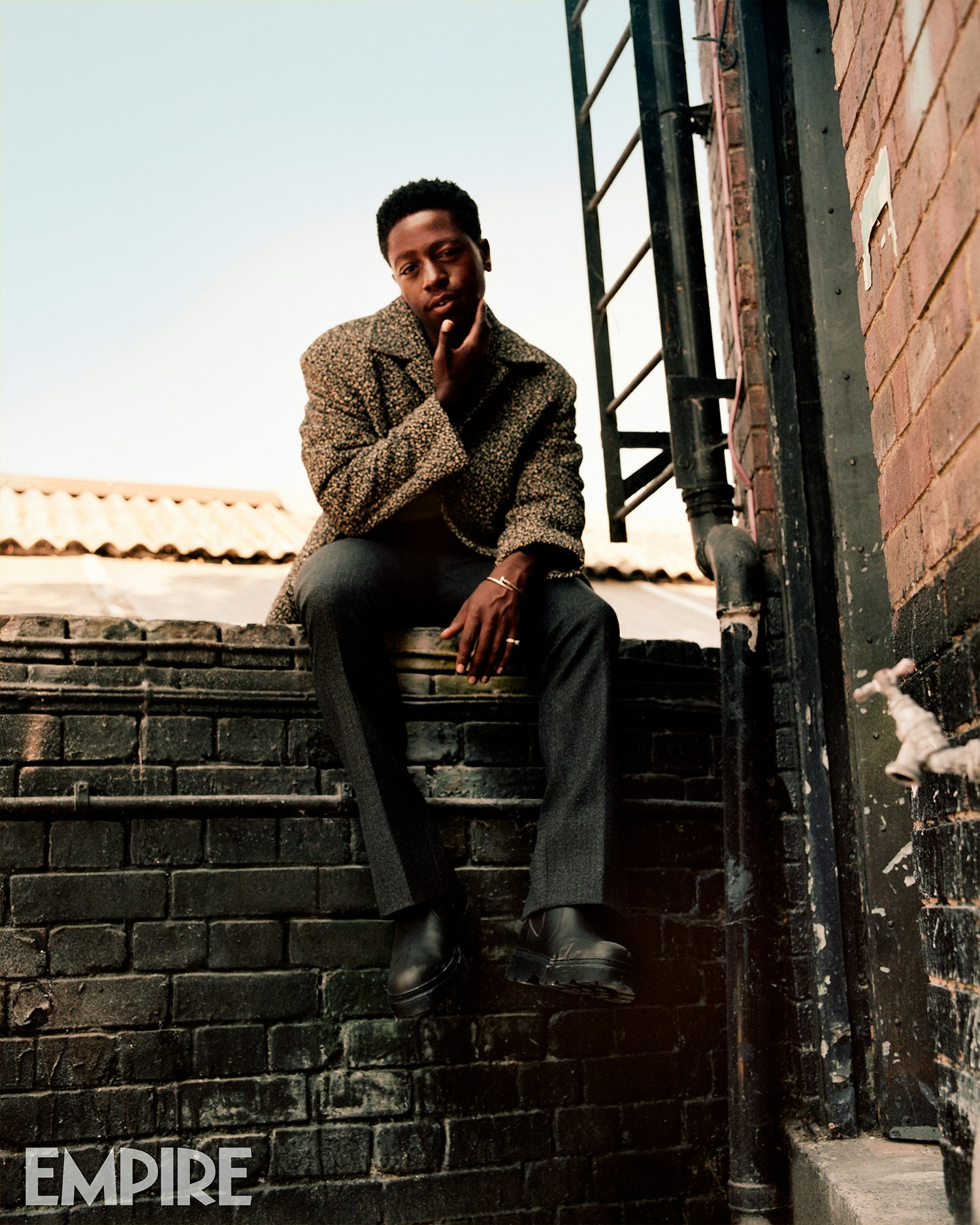
Did you feel like you fitted in?
Yes and no. I remember at times feeling like no-one really understood, or feeling like I couldn’t communicate my thoughts. I still feel that way (laughs) – but I definitely felt that as a kid. And then there were other times when I felt at the centre of a social circle, enjoying having a laugh with my mates, playing some football. I didn’t feel like an outsider, but I felt like an introvert, which is a weird contrast.
Legend has it you were expelled from school for fighting. Do you know what happened to the other guy?
(Laughs) Well, it was guys, actually; it was a couple of them. That’s why I got kicked out, by the way. I think when you come from the East End, you’re gonna fight at school. That’s just natural, but I got kicked out because it was, like, a lot of people fighting.
It was a lot of people fighting and you started all of it?
I don’t think I did… I’d like to say that I didn’t. But, y’know, if something got started, I definitely finished it (laughs). But, do you know what? Honestly, I keep in touch with a lot of those people from the East End and I’m so happy to say everyone is doing really well. A couple of my mates have got lovely girlfriends, and they’ve just settled down, and some of them are doing great jobs. So, that’s really nice, that we made it past that.
I’m surprised to hear you stay in touch with them, because you moved to New York at 16, to take up a scholarship place at The American Academy of Dramatic Arts.
Well, that period was quite pivotal. I think anyone who’s of colour and comes from a place that’s relatively poor can understand that it’s actually not not being able to afford things. It’s not that, so much as the poor mentality that comes with it. So for me, to go to New York at 16, it just broke open my perception of what I could even do in this world. And the people that I keep in touch with today from the East End were those people that saw, like, “Man, he’s experiencing something, that maybe I can get, just by keeping in contact.” Their experiences really inspire me, and they remind me of who I am – and by the way, if this whole acting thing never worked out, I’d still go back and have a pint with them, do you know what I mean? That’s just my people.
Your first breakout role was as Gus in Industry, a character with a completely different background and childhood to the one you’ve just described. What do you most remember most about that now?
What probably sticks in my mind most, actually, was having that first opportunity to see through a vision of a character. I think young actors can definitely attest to this, where you have these dreams of what the character is; how they talk, how they hold themselves in their body, all that kind of stuff. Then you get on set, all that goes out the window, and you’re just screaming lines as best as you can. But with Gus – in particular, because he’s so different from me as a person – my biggest memory is wanting to try things and actually being able to, because you have more time to do a character arc in TV than you do with film. I never want to be, like, a tricksy actor. It’s not like, “Look how many cards I’ve got in my deck!” It’s more just, when you have a vision of something that you know to be true, being able to put that on screen really is gratifying.
Rye Lane is such beloved film, for so many people, especially Londoners and Black British people. What does it mean to you?
It was my first lead role and my first movie, so I look back on it with fondness and appreciation. It’s an indie film and we made it for next-to-nothing, but we had the best experience on that set and I do really believe that how we make movies is so important – sometimes even more than the art itself, the product. I remember, it just felt like we were making something special, by sheer virtue of having a good experience. Sometimes you don’t have a great experience on set, and it still can be great. But for me, now, I know the difference. Rye Lane gave me that, for sure.
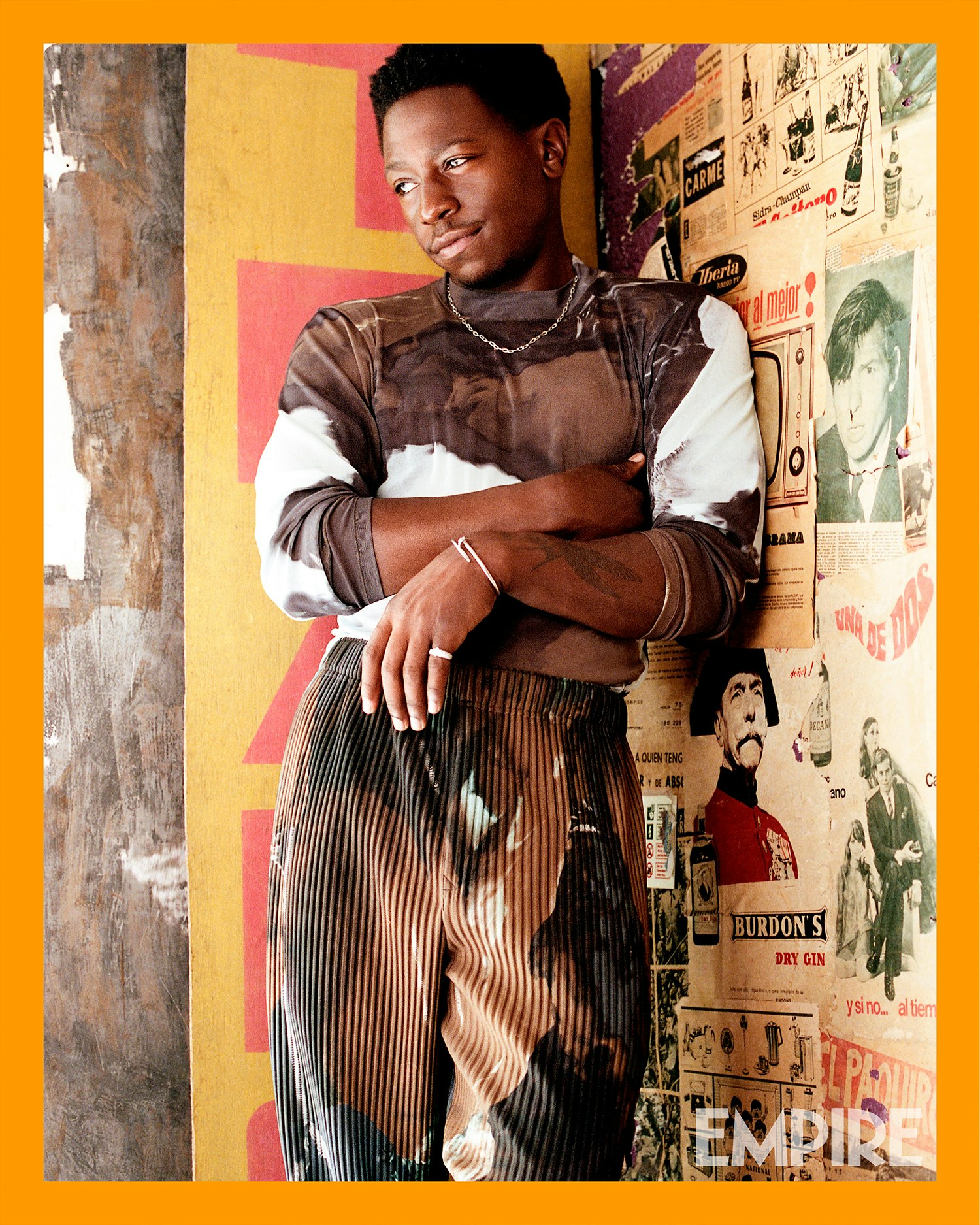
And do you see that reflected back to you, in the way that people talk about the film? Is it still one that people talk about?
Yes, and actually people that you don’t expect. I mean, people in Britain 100 per cent do, and especially south Londoners, but I had a 60-year-old white woman from Dorset talk to me about Rye Lane. And also this young, cool American in New York City. It’s really one of those films that just transcends. It’s a trip!
While respecting what you said about not being “a tricksy actor”, were there performance details in Alien: Romulus which helped convince an audience of Andy’s non-human, synthetic nature?
Yes and no. Andy was a gem of a character on the page, and a gem of a character to play. For me, what you read and then interpret… it wasn’t synthetic, actually. That came after, in understanding where he sits in the canon of the Alien universe. But it’s all, “Where do I know this kind of behaviour from?” And, “What is the most interesting behaviour in this scenario?” And in that sense, I’m not drawing from old computers (laughs). It’s all just real life, and people that I know, or think I know.
Andy has a particular ‘rebooting’ pose, which is utterly terrifying. Was that in the script?
That was all me. I looked up old African artefacts, ritualistic artefacts. I just thought, “What would that look like, if [shadowy, in-universe corporation] Weyland-Yutani had based the malfunction or rebooting off ancient artefacts?” I mean, Romulus and Remus is all ancient Roman mythology, that’s where it came from. And also Fede [Alvarez, director and co-writer], never really said no to me, which was awesome.
The Long Walk feels strikingly relevant to the current moment, given it’s based on a novel Stephen King began writing in the late 1960s. Why do you think that is?
I knew while I was doing it that this was something that would feel relevant, and draw some form of parallel to the world that we’re living in. I knew that was there, but I had no idea how relevant it was going to be. It feels really, really, timely. It’s a people piece, man. I think that Stephen King knew that this would always be about the people [versus the state], and as long as we have a state, this story will always be relevant. I think people are really going to feel something, and that’s all you really want when you make movies. I always say, “I’m not political, but the work is.”
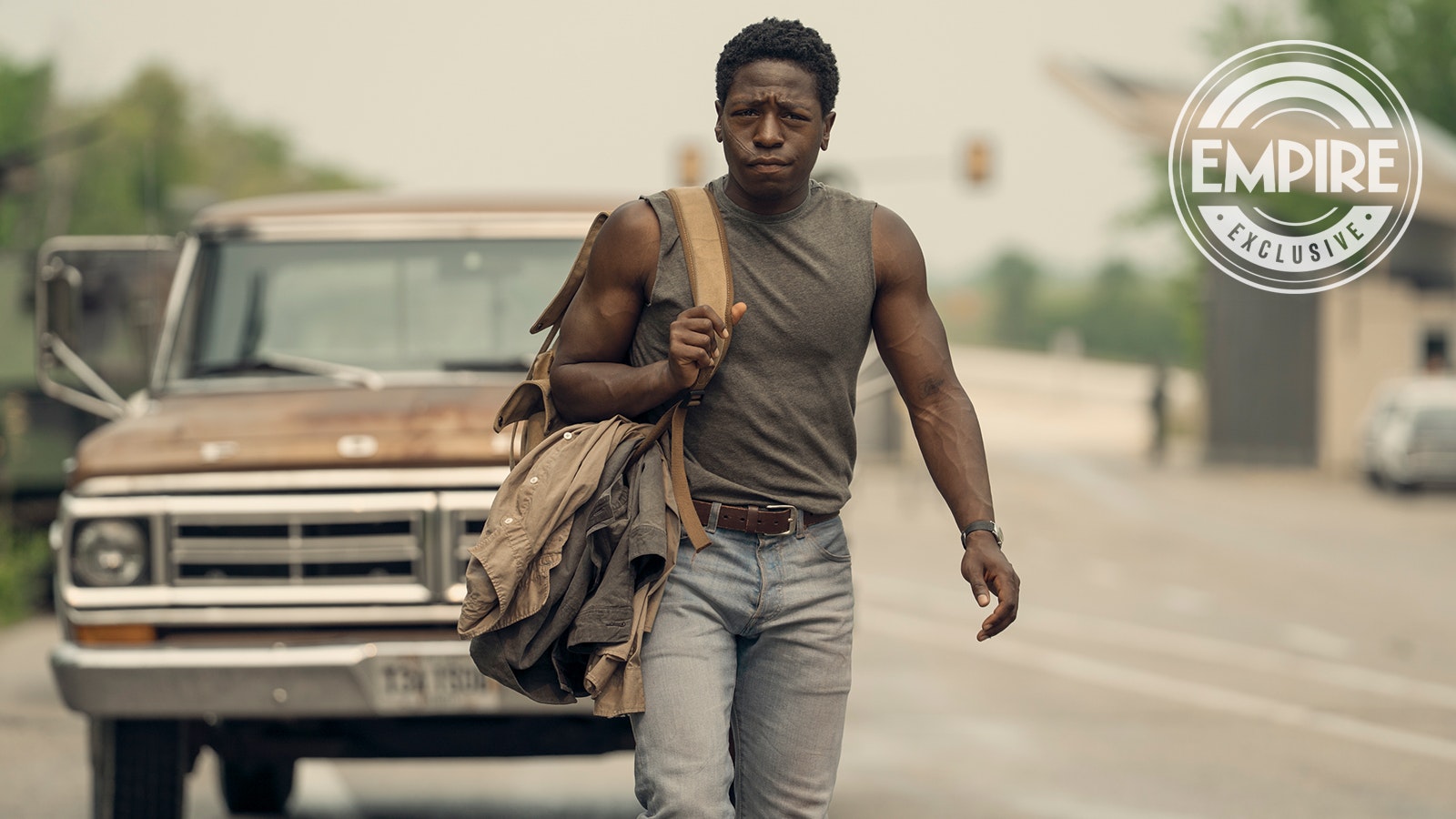
Did you bond with your cast mates more intensely than you usually would on a job?
100 per cent. Not only were we in close proximity to each other, but we were literally walking a minimum of ten miles a day, in the beating sun of Winnipeg. If anything’s gonna bring you together, it’s an experience like that. But also, we really did try to go somewhere with the work that we were doing. Not for the sake of any vain glory, but just because, I think, of that kind of army mentality. When you’re like a band of brothers, naturally, when you actually feel that bond, you just start seeing how far you can push it. And for us, it was in the work. It was, “How deep can we get into it?” So I really think all of the boys – it’s Cooper [Hoffman], it’s Charlie [Plummer], Tut [Nyuot], Ben [Wang], Garrett [Wareing], Jordan [Gonzalez], and we had these most amazing, supporting artists, who really were in the heat with us, burning in the sun – all of the boys really gave something, and I hope it gives them [something] back.
Mark Hamill plays 'The Major’ in The Long Walk, this sort of faceless, de-personalised authority figure. Did you get to know him at all, beyond the aviator shades?
They are really good shades. Actually, I didn’t talk to him at all on set. I didn’t say a single word to him. Some of the boys did, because, y’know… it’s Luke Skywalker, man! But a few of us just didn’t. Not in a rude way, it just felt right to honour the fact that there was some form of separation. That was probably the hardest thing I’ve ever done in my life, because Mark Hamill is just the nicest soul you’ve ever met. I met him after we were done filming, and he just gives me the biggest hug and goes on to tell me Hollywood stories. I’m just like, “Don't ever stop!” He’s the loveliest soul and he’s absolutely phenomenal in the film.
The almost-monologue scene, where your character Peter is finally describing where he’s come from, and his life story, is so incredible. How did you prepare for that?
Oooh, yeah. Well, I always try and keep what is private, private, but I do think that I’ve definitely got some parallels to Pete. I’ve definitely got some things that you might have wished never happened to you in life. It’s not dark, it’s just, everyone’s got them, these experiences, and I love characters that demand you to go deep, or to at least consider yourself before you step into them. I try and do that with all my characters, but particularly with Pete, that was the thing.
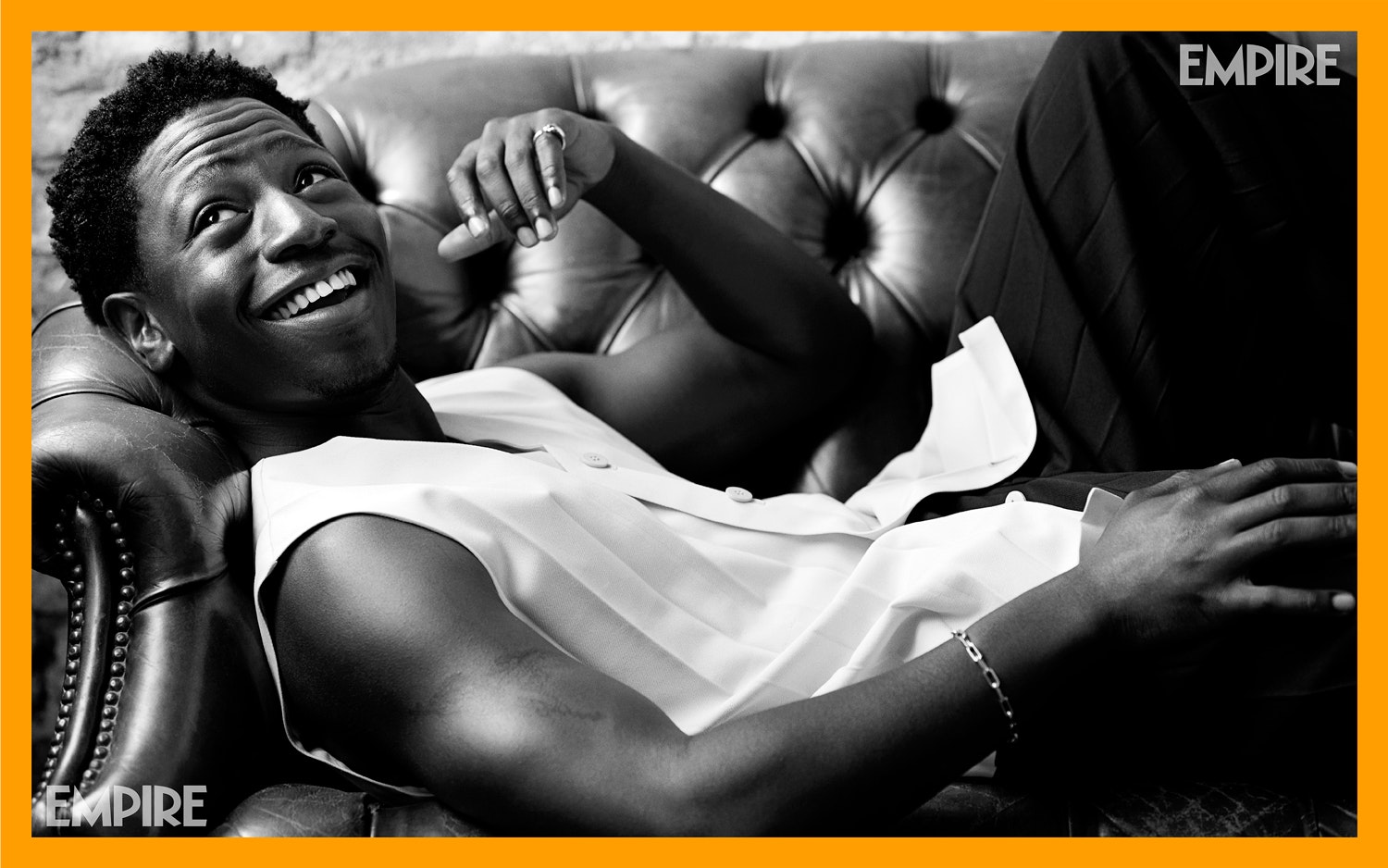
One of the most interesting aspects of the film — as a metaphor for soldiers in wartime, but also life generally — is how they seem to be simultaneously aware and unaware of their imminent deaths. How did you, as your character Peter McVries, carry that knowledge of death?
That is an awesome question. You’ve just given me butterflies. I think that one thing I found in playing him was, he has a certain way of seeing life that’s a bit poetical. Personally, I don’t think it’s pretentious. It’s just naturally poetical, in the way that I imagine a Nick Drake or any kind of amazing musician would think about life. And because of that, I remember really feeling, “Oh, there’s something way bigger than all of us [here].” I don’t know… I’ve felt that way sometimes, where it’s like, “I’m not even thinking about death, but also I am.” I feel [the presence of death], and it’s, like, two seconds away. And if it is… it is, you know? That’s not morbid. It’s just a weird feeling to talk about. I don’t know if that answers you. I think I’m still picking it apart myself.
You are actually playing a musician soon, albeit a very different sort to Nick Drake. What interests you about Sammy Davis Jr, as a character?
First of all, there’s definitely a massive physical element to him. My dad was a big music and film kind of guy and he used to show me this particular performance of [Davis Jr.’s], ‘Mr. Bojangles’ in Germany, and there’s this physical element to who this man was. Anyone who knows me knows I love sport, so I’m looking at him on the same level that I do an athlete. It’s almost like he’s running a marathon every single time he does something, and I love that. But also, beyond that, we often say that the time you’re in is what conditions the person that you become. I think that time that he was in… he made it look as if it was easy, and we know it wasn’t, you know? And that is super interesting, because you’re not just delving into a man; you’re delving into a time, a society, a universe. That’s super-delicious.
Have you started work on the Frank Ocean film yet?
Er… I don’t know how much I’m allowed to say.
I’ll just fire off some questions and you can politely demur, if you like. Do you and Frank Ocean have any favourite films in common?
Um… Yeah, go on. What did we talk about the other day…? We did bond over films. Frank is definitely a cinephile, as am I. We discussed [Gus Van Sant’s] My Own Private Idaho, although one minute he kind of likes it and the next he’s pointing out the things he would do differently, which I think is a sign of a good filmmaker, you know? How you take something and push it further. He definitely has that. We spoke about so many different films, [Gus Van Sant’s] Paranoid Park and a couple of Japanese movies, because I like Japanese movies.
The pressure of playing a person while being directed by that same person must be immense.
Um… that would imply that I’m doing… I’ll politely pass on that. But that was a good one, though! You almost got me… you almost got me.
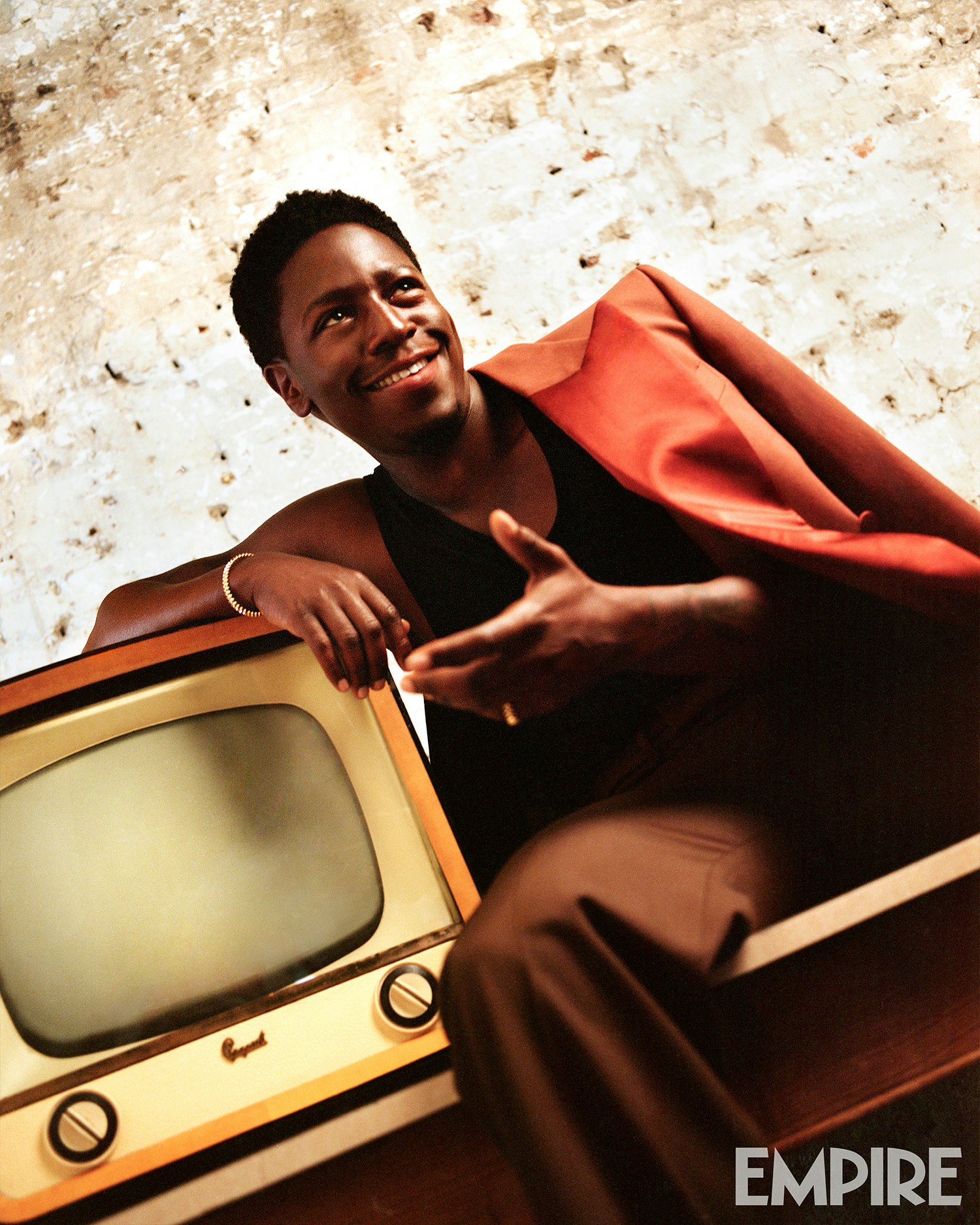
Thank you for complimenting my question, while refusing to answer it. Who are your favourite movie stars?
First and foremost, it’s obviously got to be Denzel Washington. Malcolm X is one of my all-time favourite films. There’s undoubtedly something other there. While channelling something that we know to be true, he’s pushing the boundaries of what movies can be. He’s pushing the boundaries of what we, as a race, can be. And marrying truth with legend. I just think it’s groundbreaking. I also remember really loving Vincent Cassel: I saw him in Gaspar Noé’s Irréversible, and that performance just blew my mind. Alain Delon, as well. He was a phenomenal actor.
Everything seems to be happening in your career. You’re doing so many fascinating roles and bringing a really interesting energy to them, but what are your biggest unfulfilled ambitions?
I’m not going to be coy about this: I’ve got huge ambition. Huge ambitions. I feel so lucky to be doing what I’m doing, because I’m doing it how I want to and playing characters the way I hope to. There are many directors, probably too many to name, that I want to work with, but I am also keen on writing and directing. I actually just started a production company, greyarea, to not just harness my voice, but also, others’. Look, film really gave me so much. I could go as far to say it changed my life. That sounds too dramatic – but it really gave me a lot. So I want to be able to give back.
What did film give you?
I think it made me know that I wasn’t crazy. The feelings that I was feeling weren’t mad. What’s coming to my mind right now is [2009 Andrea Arnold film] Fish Tank. And coming from where I come from, I remember watching something like Fish Tank, and I was like, “I know every single one of these people.” And [prior to watching] I didn’t even think about what she might be going through — like, “she” is the girl from Fish Tank. And I’m like, “Oh, man. Do you know what? I’ll cut her a bit more slack.” So I’m never gonna downplay it: I think the arts are vital. It gives us so much; to use and to grow with and to reflect on. And I never normally say this about my movies, [because] I just want people to enjoy them, but I really do hope that’s what The Long Walk does; gives people something to reflect on.
The Long Walk is in UK cinemas from 12 September
What's Your Reaction?









